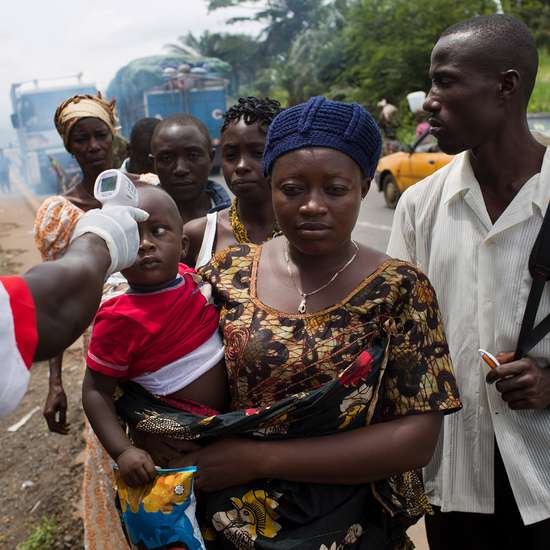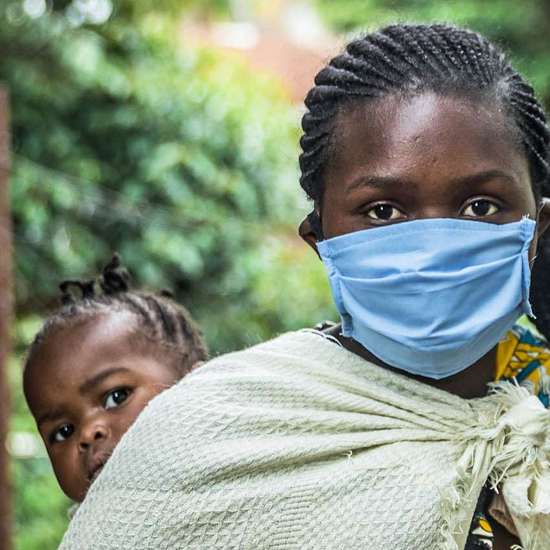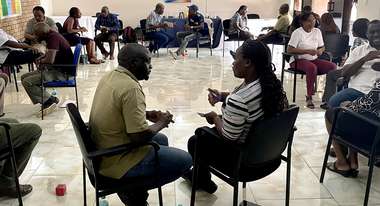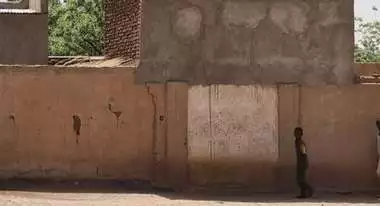Humanitarian aid during the coronavirus crisis
On 19 August, World Humanitarian Day honours the humanitarian workers risking their lives in humanitarian service worldwide – even during the COVID-19 pandemic.
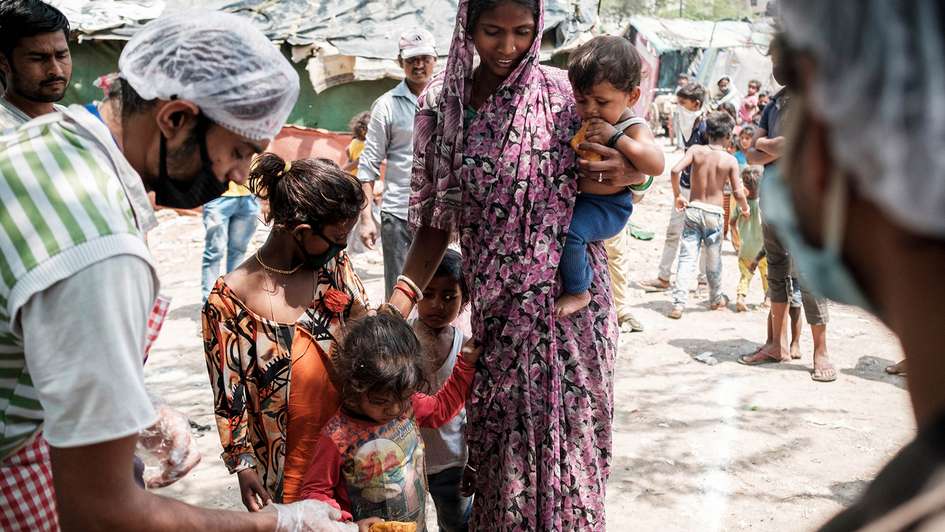
Every year on 19 August, World Humanitarian Day draws attention to dangers associated with humanitarian work. In areas affected by disaster and crisis, humanitarian workers provide life-saving assistance and protection to the most vulnerable people. They are being put to the test this year: in many countries, restrictions on outdoor activities, border closures and other measures to contain COVID-19 are hampering humanitarian access. The crux of the matter: socioeconomic consequences of the coronavirus crisis are exacerbating hunger for billions of people and making humanitarian aid more important than ever.
Humanitarian workers remain on site during the crisis
Despite the difficult conditions, many Welthungerhilfe workers have continued to provide assistance in our international projects. The motto for this year’s World Humanitarian Day is #RealLifeHeroes due to the workers' continued support of the people most vulnerable to the coronavirus crisis. Welthungerhilfe employees provide first-hand accounts below of their experiences working during the COVID-19 pandemic.
Social and economic consequences make Welthungerhilfe's work even more urgent
Nivedita Varshneya, Country Director for Welthungerhilfe in India, says: “The situation in India is very difficult at present. The economic impact of the lockdown is what is causing the most suffering. Millions of people have lost their livelihoods, especially those who survive as day labourers. The lockdown and fear of COVID-19 forced them to migrate back to their villages where they have little means of existence or food security”. Nivedita is certain these social and economic consequences have made Welthungerhilfe's work even more necessary and urgent than before.

The situation in India is very difficult at present. The economic impact of the lockdown is what is causing the most suffering.
Nivedita Varshneya Country Director for Welthungerhilfe in IndiaAt the same time as stay-at-home orders posed a major challenge to the team, several disasters have occurred in the project areas in recent months – including a locust plague, Cyclone Amphan and now flooding. “In all these situations, the coronavirus crisis makes relief and rehabilitation measures enormously difficult. Social distancing and hygiene standards must be strictly adhered to. However, despite the altered conditions, the work on site is progressing nicely and people are adapting well to the new norms,” says Nivedita.
Distributing food is one of the greatest challenges
Several crises are currently converging in Niger as well. “Niger is experiencing a threefold crisis: the climate crisis and its consequences for the food security of the people is being exacerbated by the security crisis at the borders. COVID-19 has now led to an additional health crisis,” explains Francis Djomeda, Country Director for Welthungerhilfe in Niger. “Many Nigerians live mainly from agriculture and livestock farming and are dependent on trade with their neighbours, especially Nigeria. Border closures and other restrictions have disrupted the internal market”.

All international staff have decided not to leave the country but to stay here and work in the emergency aid programme. This has led to a high degree of team motivation.
Francis Djomeda Francis Djomeda, Country Director for Welthungerhilfe in NigerWelthungerhilfe is one of the few organisations that were able to remain active during the coronavirus crisis in Niger. “All international staff have decided not to leave the country but to stay here and work in the emergency aid programme. This has led to a high degree of team motivation,” says Francis. One of the greatest challenges of Welthungerhilfe's work in Niger is the distribution of food and cash, which normally involves gathering several hundred people in one place at the same time. “We divided the people into small groups of no more than 30 people, but this inevitably resulted in delays. The border closures also made many items more expensive or difficult to obtain, especially in remote areas”.
Team spirit and innovation
Kelvin Shingles, Country Director for Welthungerhilfe in Kenya, considers it particularly remarkable that all the local members of his team have also stayed on to help their country: “I believe that our team spirit has been reinforced by this crisis,” he says. Even if it is sometimes frustrating that the restrictions on outdoor activities are preventing the team from doing more: “Since the beginning of the COVID-19 pandemic, there has been the concern in informal settlements: ‘If we don't die of coronavirus, we will starve’. For 70% of people living in the informal settlements, just getting access to food is a challenge,” says Kelvin.

Since the beginning of the COVID-19 pandemic, there has been the concern: ‘If we don't die of coronavirus, we will starve’. For 70% of people living in the informal settlements, just getting access to food is a challenge.
Kelvin Shingles Country Director for Welthungerhilfe in Kenya“However, we have managed to keep activities in rural areas going. A core team is located in these remote places and a management team in the capital Nairobi is coordinating these activities virtually. We had to revise the work processes and increase our innovation: employees have created radio and television programmes on topics such as good nutrition during the COVID-19 crisis. Also, an educational comic strip was created for children and young people”.
Virtual meetings strengthen team spirit
In Peru, currently one of the largest COVID hotspots in South America, the crisis has had a devastating effect on the 70% of the population that work in informal jobs. Country Director Susanna Daag reports: “The health crisis in Peru quickly became a socioeconomic and consequently a food crisis. 2.6 million jobs were lost. Recent surveys show that 77% of the population in Peru is currently suffering from food insecurity”.

The lack of in-person contact was not easy for us either, but on the other hand the increased number of virtual meetings brought us closer to our colleagues in Germany and other countries where Welthungerhilfe is active.
Susanna Daag Country Director for Welthungerhilfe in PeruIt was therefore all the more important that the team quickly reorganised itself so that urgently needed aid reached the population despite the lockdown. “For many of our local partner organisations, who work not only in difficult contexts but also in rural areas without internet access, this was a major challenge. The lack of in-person contact was not easy for us either, but on the other hand the increased number of virtual meetings brought us closer to our colleagues in Germany and other countries where Welthungerhilfe is active,” says Susanna.





